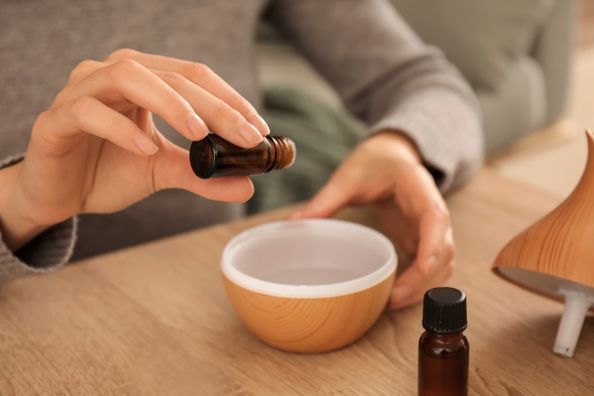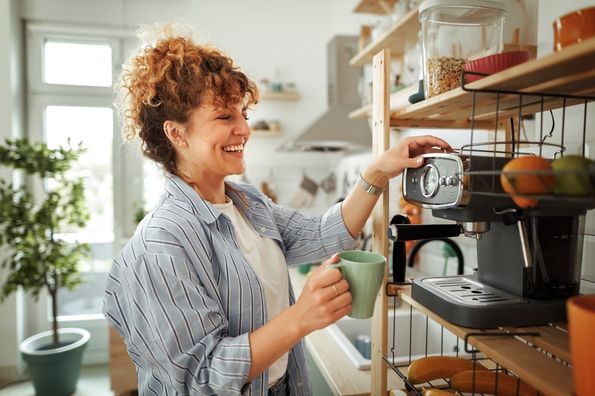It is recommended that adults receive seven to nine hours of sleep each night. However, getting the sleep you need to function at your best is not always as easy as it sounds.
Restless nights spent tossing and turning can be frustrating in more ways than one, and many people turn to their local pharmacy in hopes of finding a sleep aid that will work for them. In addition to prescription and over-the counter medications, there are a variety of trending sleep aids that can help assist you with sleep relief.
DMG Sleep Medicine physician, Dr. Juan Flores, recommends the following tips for getting a good night’s rest.
Creating a peaceful bedroom environment
Your sleeping environment is one of the most important factors in helping you receive a full night’s rest. This includes anything that has an effect on the physical space in which you sleep such as lighting, room temperature, sound and even furniture.
For the bedside table
For many people, the time spent trying to fall asleep is the biggest barrier to receiving a quality night’s rest. Hectic schedules and busy days make it difficult to power off in time for bed, hindering your body’s ability to get the rest and relaxation it needs. Taking the time to relax your mind and body will do wonders for your sleep.
Consider the following for your bedside table:
Oil diffuser
Oil diffusers are devices that emit aromatherapy vapors into the air to induce a calming effect. Using an oil diffuser in your bedroom can help promote physical and emotional well-being and may enhance your sleep. Some of the best essential oils for sleep include lavender, sage, sweet marjoram and bergamot.
Sound machine
Sound may be distracting for those who are light sleepers but the quieter the room, the more heightened your hearing becomes. A sound machine makes a soothing, white noise that can help distract you from disruptive noises outside of your room. Sounds such as rustling leaves and rushing waterfalls can be relaxing and help prepare you for a comfortable night of sleep.
Accessorizing your bed
While it may seem obvious, your bed plays a large role in the quality of sleep you receive. Choosing the right mattress, pillows and blankets not only makes for a cozy bed, but it can decrease stress and anxiety while improving your overall quality of sleep.
Consider dressing your bed with the following:
Therapeutic mattress & pillows
A night spent tossing and turning could be the result of a poor mattress. Originally created for hospital use, therapeutic mattresses can help reduce pressure points, regulate temperature, prevent bed sores and allow better circulation to help you fall (and stay) asleep. Therapeutic mattresses also come in a variety of forms including air, foam, water and gel.
Similar to the benefits provided by a therapeutic mattress, therapeutic pillows aid in comfort and posture by providing support for your head, neck and upper back. This is accomplished through indentations or grooves in the pillow that mimic the curves of your body. By helping achieve postural alignment, therapeutic pillows can ease tension in the muscles, joints and nerves.
Compression blanket
Otherwise known as weighted blankets, compression blankets are heavy blankets that can weigh up to 15 pounds. Often filled with poly pellets, discs, plastic beads or glass, compression blankets offer numerous benefits for your sleep. For instance, the heavy compression you experience from the blanket can help combat stress, while boosting melatonin and serotonin levels that are critical to restful sleep and relaxation.
Medications & dietary supplements
Over-the-counter sleep aids
If sleep accessories and relaxation techniques aren’t sufficient in inducing a good night’s sleep, you may consider sleep medication.
While you’ll need to speak with your physician to receive prescription medication, there are various over-the-counter sleep aids made available to you, including:
- ZzzQuil
- Melatonin
- Aleve PM
- Valerian
It is important to discuss any over-the-counter sleep medications that you plan on taking with your sleep medicine physician. Also, be sure to read the directions on the medication carefully before use and take time to understand the possible side effects.
Vitamins & minerals
If you prefer natural alternatives to medication, consider supplementing your diet with the following vitamins and minerals:
- Vitamin D
- Calcium
- Magnesium
- Iron
- Chamomile tea
- B vitamins
Be sure to speak with your sleep medicine physician before taking vitamins and minerals to help determine what is best for you.
The quality and quantity of your sleep play a large role in determining your overall health. If you have difficulties sleeping you don’t have to accept defeat. When paired with healthy life practices and a regular sleep routine, sleep aids can provide you with the rest you need to feel your best. Learn more about what you can do to achieve a better night’s rest by scheduling an appointment with our sleep medicine physicians online, or by calling your preferred location.
Health Topics:







